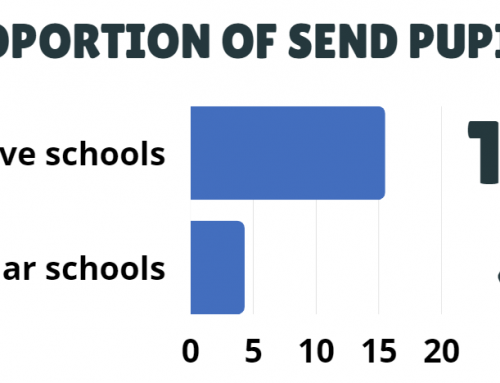Comprehensive Future supporters met today in Birmingham to plan to campaign for fair admissions. Comprehensive Future Chair David Chaytor MP said that Government must make fair admissions a reality for all pupils and parents. Comprehensive Future will lobby to persuade Government to underpin its fair admissions policy with the following objectives –
- ensure admission policies and practices are fair to all parents and children.
- provide the opportunity for all children to attend a local school if their parents wish it
- secure, as far as possible, balanced intakes in all secondary schools in terms of ability and socio economic backgrounds
- maximise the number of parents allocated their first preference school within the inevitable constraints of transport, location and buildings
- ensure the availability of high quality schools in all our communities
- encourage parity of esteem between schools however diverse.
Speaking at the meeting the Chief Adjudicator Dr Philip Hunter welcomed parts of the White Paper which give a ‘helpful nudge’ towards banding and random allocation which could form part of some admission policies. Full text of this part of Dr Hunter’s speech below.
Extract from talk to Comprehensive Future Meeting: 5 November
Philip Hunter
I was pleased to see that the White Paper gives a little boost to the use of random allocation (lotteries) and banding in school admissions. I want to make two points:
1. Random allocation and banding produce the same result in terms of the ability distribution of children accepted. Random allocation has three advantages: it is cheap and easy to administer; children do not have to take extra type tests; and it avoids the possibility of some parents calculating that they might stand a better chance of getting places in preferred schools if their children performed worse in tests than they are capable of. But the problem with random allocation is that it is truly a lottery. Parents might feel that the future education for their children should not be determined that way. We should find out more from parents how they think about this.
2. In a few inner city areas, general banding for school admissions can work well. For most of the country, however, banding or random allocation cannot be introduced at the expense of giving priority to local parents and children. There is nothing that infuriates parents more than being denied a place in their local school because the school has decided to take children who live further away. It is reasonable to allocate spare school places to parents who want them, even if those schools are a long way from where they live. It is not reasonable to deny places to local children who want them when those children would have to travel a long way to an alternative school. There must be a general presumption in favour of giving children places in their local schools, if that is what their parents want. There would be riots in the streets of many towns and villages on the edges of cities if some of their children had to travel into the city to make way for children travelling in the opposite direction. Many of these areas are situated in marginal parliamentary constituencies.
I am aware that this presumption leads to a position in which some schools serving posh areas produce better examination results than schools serving mixed areas. I do not regard that as a problem. The problems are:
(i) How do we make sure that high performing schools that have met the needs of their local communities and still have spare places, do not cream off the brightest children from neighbouring areas? I believe that this is where random allocation or banding can have a useful place.
(ii) How do we define the “local community” for these schools? I do not think there is any single national way of doing this. In some areas, it is best done through a catchment area; in others, there should be a distance criterion; in Church schools, priority can be given to parishes and deaneries. These questions have to be settled locally between the school, the Local Authority and the admissions forum – with schools adjudicators called in where there is a dispute.
(iii) How do we deal with schools in areas where there is a very high proportion of difficult-to-teach children? I believe we have to do this through programmes, like the academies programme, which aim to make the schools popular and successful through extra support and resources. We would achieve nothing by forcing reluctant parents to send their children to those schools. Banding and random allocation do not work in reverse.





